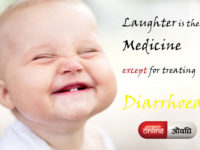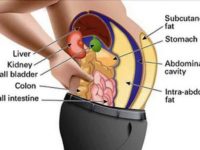1. Know your family history
As with many medical conditions, family history is a key indicator of bone health. Those with a parent or sibling who has or had osteoporosis are more likely to develop it. “So, how’s your bone density, Grandma?” might seem like an awkward question at Thanksgiving dinner, but ask anyway before she passes the gravy.
2. Boost calcium consumption
When most people think bones, they think calcium. This mineral is essential for the proper development of teeth and bones. (Not to mention it’s a huge helper in proper muscle function, nerve signaling, hormone secretion, and blood pressure.)
3. Don’t forget the vitamin D
Where there’s calcium, there must be vitamin D: the two work together to help the body absorb bone-boosting calcium. Boost vitamin D consumption by munching on shrimp, fortified foods like cereal and orange juice, sardines, eggs (in the yolks) and tuna, or opt for a vitamin D supplement. Greatist Expert Eugene Babenko suggests getting your vitamin D (specifically vitamin D3) levels checked at your next doctor’s appointment, and to discuss the use of supplements with your doctor.
4. Boost bone density with vitamin K
Vitamin K is mostly known for helping out with blood clotting, but it also helps the body make proteins for healthy bones. However, the exact way vitamin K contributes to bone health is unclear. Two studies on young girls showed that vitamin K had different effects: one showed that vitamin K slowed bone turnover, but it didn’t have any effect on bone mineral density, while the other found the reverse.
5. Pump up the potassium
Potassium isn’t necessarily known for aiding bone health: it’s a mineral that helps nerves and muscles communicate and also helps cells remove waste. But it turns out potassium may neutralize acids that remove calcium from the body.
6. Make exercise a priority Seriously
Regular exercise is key to keep a number of health issues at bay, and bone health is no exception. In fact, living a sedentary lifestyle is considered a risk factor for osteoporosis. One study comparing bone density in college women with various body weights and activity levels found that athletes with low body weight had the highest bone density of any group in the study, showing exercise (and low body weight) can have a positive effect on bone density.
7. Consume less caffeine
Caffeine does have some health benefits, but unfortunately not for our bones. Too much of it can interfere with the body’s ability to absorb calcium. One study showed that drinking more than two cups of coffee per day accelerated bone loss in subjects who also didn’t consume enough calcium. Another study (albeit on elderly women) showed that more than 18 ounces of coffee per day can accelerate bone loss by negatively interacting with vitamin D. So enjoy the java, but keep it in moderation and consume enough calcium, too.
8. Cool it on the booze
But like caffeine, there’s no need to quit entirely. While heavy alcohol consumption can cause bone loss (because it interferes with vitamin D doing its job), moderate consumption (that’s one drink per day for women, two per day for men) is fine — and recent studies actually show it may help slow bone loss. Bottoms up!
9. Quit smoking
Here’s yet another reason to lose the cigarettes: multiple studies have shown that smoking can prevent the body from efficiently absorbing calcium, decreasing bone mass.
10. Don’t be an astronaut
Not to kill any childhood dreams, but because of those hours and hours of weightlessness and low-calcium diets, astronauts often suffer from space-induced osteoporosis. Space-anything sounds kind of awesome, but space bones definitely aren’t: astronauts can lose up to 1% to 2% of their bone mass per month on a mission! For those who simply must visit the moon, there is a possible solution: two studies have found that vitamin K can help build back astronauts’ lost bone — more than calcium and vitamin D.
Beside this
11. Yogurt
Most people get their vitamin D through exposure to sunlight, but certain foods, like yogurt, are fortified with vitamin D.
12. Milk
There’s a reason milk is the poster child for calcium. Eight ounces of fat-free milk will cost you 90 calories, but provide you with 30% of your daily dose of calcium. Choose a brand fortified with vitamin D to get double the benefits.
13. Cheese
Just because cheese is full of calcium doesn’t mean you need to eat it in excess (packing on the pounds won’t help your joints!). Just 1.5 ounces (think a set of dice) of cheddar cheese contains more than 30% of your daily value of calcium, so enjoy in moderation.
14. Sardines
These tiny fish, often found in cans, have surprisingly high levels of both vitamin D and calcium. Though they may look a bit odd, they have a savory taste that can be delicious in pastas and salads.
15. Eggs
Though eggs only contain 6% of your daily vitamin D, they’re a quick and easy way to get it. Just don’t opt for egg whites—they may cut calories, but the vitamin D is in the yolk.
16. Salmon
Salmon is known for having plenty of heart-healthy omega-3 fatty acids, but a 3-ounce piece of sockeye salmon contains more than 100% of your vitamin D. So eat up for your heart and your bones.
17. Spinach
Don’t eat dairy products? Spinach will be your new favorite way to get calcium. One cup of cooked spinach contains almost 25% of your daily calcium, plus fiber, iron, and vitamin A.
18. Orange juice
A glass of fresh-squeezed OJ doesn’t have calcium or vitamin D, but it’s often fortified to contain these nutrients. Try Tropicana’s Calcium + Vitamin D to get a boost of these essentials.
Sources
http://www.health.com/health/gallery/0,,20365458_12,00.html
http://spoilertv.com














